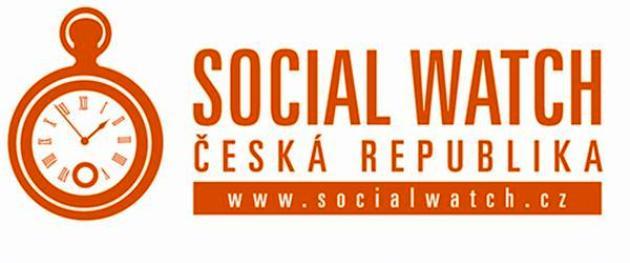Czech Govt report on domestic human rights says debt collections proceedings are the country's biggest problem

The Czech Republic has not yet managed to solve its problems with the personal debt trap and overindebtedness, and laws to improve the situation are lacking, which means the rules governing collections proceedings are being corrected by the courts instead. Systematic education of the public to boost their financial and legal literacy is developing only slowly.
These are the findings of the annual report about the state of human rights in the Czech Republic for 2017. The document and its findings should be discussed at the next cabinet session.
According to an online map of collections in the country, 864 000 Czechs were under such proceedings last year, or almost 10 % of the population. Almost half a million people were involved in three or more collections proceedings.
“Many of these people owe such high amounts that they will never be able to pay them off during their lifetimes. Their debts are so high that they do not qualify for debt forgiveness, which requires paying 30 % of the debt over five years,” the report states.
An online map of collections proceedings has been created by the Ecumenical Academy and Open Society which shows that last year, compared to 2016, another 31 000 people under collections proceedings were added to the system. Over time the situation has deteriorated in 12 of the country’s 14 regions.
In the Ústecký Region, 18 % of people 15 years of age or older are in collections, while in the Karlovy Vary Region 17 % are and in the Liberec Region, 12 % are. A total of 151 000 people aged 15 and over have been involved in more than 10 collections proceedings.
The total principal involved last year is worth CZK 239 billion [EUR 9 billion]. The authors of the map said 90 % of all collections proceedings are not enforceable.
Half of the proceedings are for amounts of money worth CZK 10 000 [EUR 400] or less. Most debts, therefore, are mainly for unpaid costs, fees, interest and penalties for late payments.
Many people have become indebted because, for example, their income declined during an illness, or their former partner failed to pay them alimony or child support. According to the report, when the facts are interrogated more closely, statements such as “debts must be paid” or “if you don’t want to owe money, don’t borrow any” can be seen to be seriously flawed in the Czech context.
Everybody loses
The report emphasizes that the current state of affairs is not advantageous for anybody. “Debtors leave the legal market for work until practically the end of their lives, because all of their official income would be immediately seized if they were to be formally employed. Employers are burdened by administering collections payments. The state is losing income that could be paid into health insurance, social security and taxes and is, on the contrary, forced to support those who qualify for welfare. Creditors are also losing,” the report finds.
During correct debt relief processes, according to the report, creditors can count on receiving at least some of their money and the debtor will not lose his or her motivation to be formally employed. There is no agreement among politicians on the rules that could facilitate debt relief so more people might start anew.
The report points out that last year two different bills on the issue, one to abolish the condition that at least 30 % of debt be paid and one to combine collections proceedings into a single process, did not make it through the lower house. For the time being all that has been amended is the bankruptcy law.
Systematic education to improve people’s financial and legal literacy is only slowly developing, according to the report. “The issue of collections is especially being corrected through the courts,” the report finds.
The Constitutional Court, for example has ruled that prisoners’ incomes cannot be collected. Minors becoming indebted has also been addressed by that court.
According to the justices, children are meant to have the right to achieve majority without inheriting debts incurred through no fault of their own, and the report says the courts, when addressing such cases, should distinguish whether the debts were “ascribed to them by a higher authority”, such as fees for garbage collection, or whether they were incurred by a third party. The map of collections demonstrates that in some municipalities children comprise one-tenth of the persons in collections proceedings.
The annual human rights report has been produced by the Secretariat of the Czech Government Human Rights Council since 1998. The Czech Republic also underwent the Universal Periodic Review before the United Nations with respect to the state of human rights in the country last year.
The country received 201 recommendations through that process regarding, for example, the inclusion of migrants and Romani people, inclusion in the schools, the equality of men and women, compensation for victims of illegal sterilizations, or limiting the number of children taken into institutional care. The Government has supported 177 of those recommendations and taken note of 24 of them.
